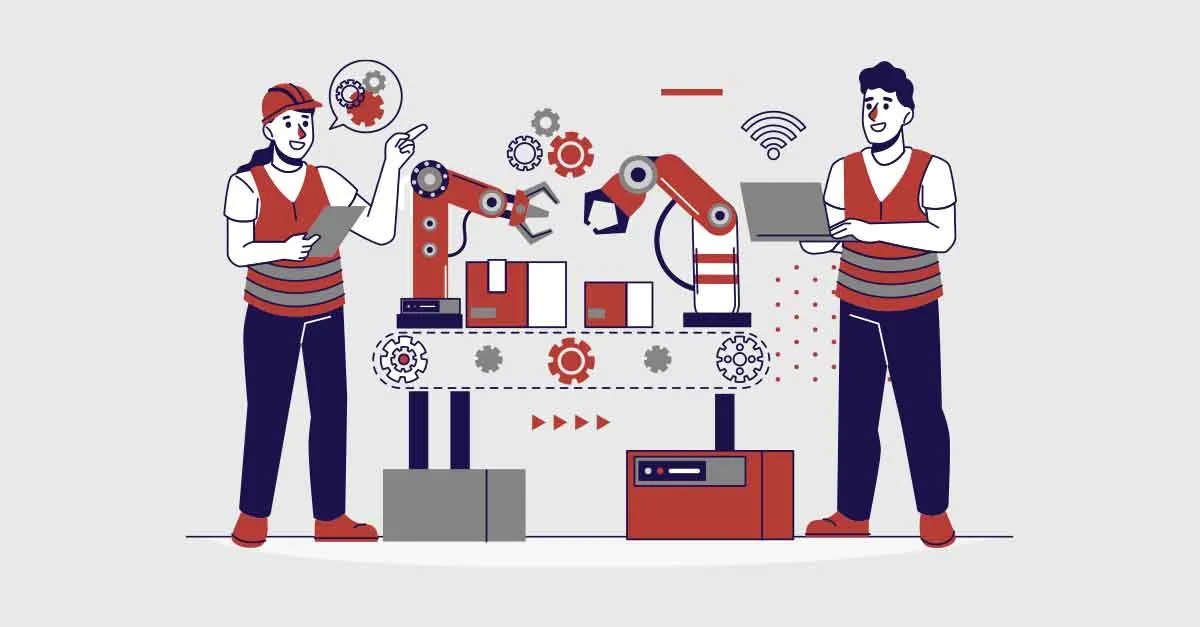When I first heard about the Internet of Things (IoT) in the world of factories and production lines, I thought it was just another tech buzzword. But the more I explored it, the more I realized that B2B IoT solutions for manufacturing are not just fancy gadgets—they’re real game changers.
I’ve seen factories that used to struggle with downtime, errors, and waste completely transform their operations by adopting IoT-powered systems. And trust me, this is not just for big corporations. Small and medium manufacturers can also use IoT to improve quality, save money, and stay ahead of competitors.
In this blog, I’ll share everything I know about IoT solutions for manufacturers—what they are, why they matter, how businesses can apply them, and what future trends we should prepare for.
Read also: What Is Software For Managing A Business Fleet
What Are B2B IoT Solutions for Manufacturing
B2B IoT solutions for manufacturing are digital tools that connect machines, devices, sensors, and software to share real-time data. In simple words, IoT lets machines “talk” to each other and to people.
Imagine a machine on a factory floor that can sense when it’s about to break down. Instead of waiting for failure, it sends an alert to the maintenance team so they can fix it before production stops. That’s IoT in action.
These solutions work across many areas:
- Smart sensors track machine health.
- Cloud platforms store and analyze production data.
- Automation systems adjust workflows in real-time.
- AI-driven insights help leaders make smarter decisions.
Why B2B IoT Solutions for Manufacturing Are a Big Deal
I’ve worked with many businesses, and the common challenge they face is inefficiency. Machines break down, workers waste time, supply chains get stuck. IoT solves these problems by giving us data-driven visibility.
Here’s why it’s a big deal:
- Less downtime – Machines predict problems before they fail.
- Lower costs – Energy, materials, and labor are used wisely.
- Better quality – Sensors ensure products meet exact standards.
- Faster production – Automation speeds up tasks.
- Safer workplace – IoT monitors conditions and prevents accidents.
In short, IoT turns factories into smart factories.
How B2B IoT Works in Manufacturing
To keep things easy, I’ll break it down into steps:
- Collecting Data Sensors on machines gather data (temperature, vibration, speed).
- Connecting Devices This data is sent through secure networks (Wi-Fi, 5G, or wired).
- Analyzing Information Cloud software or AI tools process the data.
- Taking Action Managers, engineers, or even machines themselves make changes.
Example: If a machine is overheating, the system automatically slows it down or alerts the technician.
Key Applications of B2B IoT Solutions for Manufacturing
Smart Predictive Maintenance
One of the most powerful uses of B2B IoT solutions for manufacturing is predictive maintenance. Instead of fixing machines after they fail, IoT predicts when they might break.
I remember working with a mid-sized textile manufacturer. They were losing 20 hours of production every month because of machine breakdowns. After adding IoT sensors, they cut downtime by 65%.
Real-Time Supply Chain Monitoring
IoT gives manufacturers a live view of supply chains—from raw materials to delivery trucks. This means fewer delays and smarter inventory management.
Energy Efficiency with IoT
Factories use a lot of electricity. IoT helps track energy usage and reduces waste. Some companies cut their energy bills by 30% just by using smart sensors.
Quality Control with IoT
Instead of random checks, IoT systems continuously monitor product quality. This ensures fewer defects and happier customers.
Worker Safety Monitoring
IoT wearables track workers’ health (heart rate, fatigue levels) and detect unsafe conditions (toxic gas, high heat).
Benefits of B2B IoT Solutions for Manufacturing
Here are the big wins I’ve personally observed:
- Cost Savings – Lower maintenance and energy bills.
- Higher Productivity – Machines run longer without interruptions.
- Data-Driven Decisions – Leaders know exactly what’s happening in real time.
- Flexibility – Production can adapt quickly to market changes.
- Sustainability – Less waste, more eco-friendly operations.
Expert Opinion: According to McKinsey, IoT can add up to $3.7 trillion in value per year across industries, with manufacturing being the biggest contributor.
Read also: How Enterprise Blockchain Technology Improves Security
Challenges in Implementing IoT for Manufacturing
Of course, it’s not all sunshine. I’ve seen companies struggle with:
- High initial cost – Sensors, cloud platforms, and training need investment.
- Data security risks – More connected devices mean higher chances of cyberattacks.
- Skill gap – Workers need training to use IoT systems effectively.
- Integration issues – Old machines sometimes don’t “talk” well with new tech.
But honestly, these challenges are worth solving because the long-term benefits outweigh the initial hurdles.
Future of B2B IoT in Manufacturing
Here’s what excites me about the future:
- AI-powered IoT – Machines that learn and adapt automatically.
- 5G networks – Faster, more reliable IoT connections.
- Digital twins – Virtual factory models for testing changes before real implementation.
- Green manufacturing – IoT helping businesses meet sustainability goals.
I believe the future factory will be fully connected, automated, and sustainable.
FAQs About B2B IoT Solutions for Manufacturing
Q1: Is IoT only for big factories?
No, even small manufacturers can use IoT. Affordable sensors and cloud tools make it accessible.
Q2: How secure are IoT systems?
Security depends on setup. Using encryption, firewalls, and regular updates keeps IoT safe.
Q3: Does IoT reduce jobs?
Not really. IoT removes repetitive tasks but creates new jobs in data analysis, tech management, and AI.
Q4: How much does IoT cost for manufacturing?
It depends on scale. Some small setups cost under $10,000, while large ones can run into millions.
Conclusion
From what I’ve seen, B2B IoT solutions for manufacturing are no longer optional—they’re necessary. Factories that ignore IoT risk falling behind, while those that adopt it gain speed, savings, and a competitive edge.

